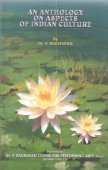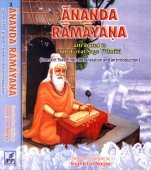Bharavi, Bhāravi, Bhāravī: 13 definitions
Introduction:
Bharavi means something in Hinduism, Sanskrit. If you want to know the exact meaning, history, etymology or English translation of this term then check out the descriptions on this page. Add your comment or reference to a book if you want to contribute to this summary article.
In Hinduism
Ayurveda (science of life)
Source: Wisdom Library: Āyurveda and botanyBhāravi (भारवि) is another name for Tulasī, which is a Sanskrit word referring to Ocimum tenuiflorum (holy basil), from the Lamiaceae family. It is classified as a medicinal plant in the system of Āyurveda (science of Indian medicine) and is used throughout literature such as the Suśrutasaṃhita and the Carakasaṃhitā. The synonym was identified in the Rājanighaṇṭu (verses 10.148-149), which is a 13th century medicinal thesaurus.

Āyurveda (आयुर्वेद, ayurveda) is a branch of Indian science dealing with medicine, herbalism, taxology, anatomy, surgery, alchemy and related topics. Traditional practice of Āyurveda in ancient India dates back to at least the first millenium BC. Literature is commonly written in Sanskrit using various poetic metres.
Kavya (poetry)
Source: Shodhganga: The Kavyamimamsa of RajasekharaBhāravi (भारवि) is the name of an important person (viz., an Ācārya or Kavi) mentioned in Rājaśekhara’s 10th-century Kāvyamīmāṃsā.—An eminent poet Sanskrit literature for his Mahākāvya (Epic) Kirātarjunīya. According to Avantīsundarī, his real name was Dāmodara.

Kavya (काव्य, kavya) refers to Sanskrit poetry, a popular ancient Indian tradition of literature. There have been many Sanskrit poets over the ages, hailing from ancient India and beyond. This topic includes mahakavya, or ‘epic poetry’ and natya, or ‘dramatic poetry’.
Chandas (prosody, study of Sanskrit metres)
Source: Shodhganga: a concise history of Sanskrit Chanda literatureBhāravī (भारवी) is the name of an author of works dealing with prosodoy (chandas or chandaśśāstra) quoted by Kṣemendra (11th century) in his Suvṛttatilaka. The Suvṛttatilaka is a monumental work of Sanskrit prosody in which the author discusses 27 popular metres which were used frequently by the poets (e.g., Bhāravī).

Chandas (छन्दस्) refers to Sanskrit prosody and represents one of the six Vedangas (auxiliary disciplines belonging to the study of the Vedas). The science of prosody (chandas-shastra) focusses on the study of the poetic meters such as the commonly known twenty-six metres mentioned by Pingalas.
Purana and Itihasa (epic history)
Source: archive.org: Puranic EncyclopediaBhāravi (भारवि).—A Sanskrit poet who flourished in the 6th century A.D. He is the author of the mahākāvya called Kirātārjunīya. Raghuvaṃśa, Kumārasambhava, Kirātārjunīya, Śiśupālavadha and Naiṣadha are the five Mahākāvyas in Sanskrit with established reputation. In the Ehole records of A.D. 634 Bhāravi is held up in praise along with Kālidāsa.* The theme of Kirātārjunīya is Śiva, in the guise of a hunter, attacking Arjuna immersed in penance. Bhāravi’s literary style is simple and sweet. In the use of similes he is second only to Kālidāsa. Among his books only Kirātārjunīya has been found out yet.
*) Yenāyoji na veśma sthiram arthavidhau vivekinā jinaveśma/ Sa jayatāṃ ravikīrtiḥ kavitāśrita-Kālidāsa-Bhāravikīrtiḥ.//

The Purana (पुराण, purāṇas) refers to Sanskrit literature preserving ancient India’s vast cultural history, including historical legends, religious ceremonies, various arts and sciences. The eighteen mahapuranas total over 400,000 shlokas (metrical couplets) and date to at least several centuries BCE.
Languages of India and abroad
Sanskrit dictionary
Source: DDSA: The practical Sanskrit-English dictionaryBhāravi (भारवि).—Name of the author of the Kirātārjunīya; तावद् भा भारवेर्भाति यावन्माघस्य नोदयः । उदिते च पुनर्माघे भारवेर्भा रवेरिव (tāvad bhā bhāraverbhāti yāvanmāghasya nodayaḥ | udite ca punarmāghe bhāraverbhā raveriva) ||; भारवेरर्थगौरवम् (bhāraverarthagauravam) Udb.; कविताश्रितकालिदासभारविकीर्तिः (kavitāśritakālidāsabhāravikīrtiḥ) Samudragupta inscription.
Derivable forms: bhāraviḥ (भारविः).
Source: Cologne Digital Sanskrit Dictionaries: Shabda-Sagara Sanskrit-English DictionaryBhāravi (भारवि).—m.
(-viḥ) The name of a poet, the author of the Kiratarjuniya.
Source: Cologne Digital Sanskrit Dictionaries: Benfey Sanskrit-English DictionaryBhāravi (भारवि).—m. The name of a poet,
Bhāravi (भारवि).—[masculine] [Name] of a poet.
Source: Cologne Digital Sanskrit Dictionaries: Aufrecht Catalogus CatalogorumBhāravi (भारवि) as mentioned in Aufrecht’s Catalogus Catalogorum:—the author of the Kirātārjunīya, is first mentioned in an inscription of 634 A. D.
Source: Cologne Digital Sanskrit Dictionaries: Monier-Williams Sanskrit-English Dictionary1) Bhāravi (भारवि):—[=bhā-ravi] a m. Name of the author of the Kirātārjunīya (first mentioned in an, [Inscriptions of 634 Apte’s The Practical Sanskrit-English Dictionary.D.])
2) Bhāravī (भारवी):—[from bhārava] f. sacred basil, [cf. Lexicographers, esp. such as amarasiṃha, halāyudha, hemacandra, etc.]
3) Bhāravi (भारवि):—[=bhā-ravi] b See under 2. bhā.
Source: Cologne Digital Sanskrit Dictionaries: Yates Sanskrit-English DictionaryBhāravi (भारवि):—(viḥ) 2. m. Name of a poet.
[Sanskrit to German]
Sanskrit, also spelled संस्कृतम् (saṃskṛtam), is an ancient language of India commonly seen as the grandmother of the Indo-European language family (even English!). Closely allied with Prakrit and Pali, Sanskrit is more exhaustive in both grammar and terms and has the most extensive collection of literature in the world, greatly surpassing its sister-languages Greek and Latin.
See also (Relevant definitions)
Starts with: Bharavinem, Bharavisu.
Full-text (+5): Shatapushpa, Shatalumpaka, Kiratarjuniya, Mahopadhyaya, Mahakavi, Shatalampaka, Vishamavilocana, Shatrulumpa, Shatalupa, Shatalumpa, Bhagiratha mishra, Kitararjuniya, Yashodhana, Brahmasabha, Mahakavya, Tulasi, Sarahsarasiruha, Sarahsarasija, Vamshastha, Arthantara.
Relevant text
Search found 27 books and stories containing Bharavi, Bhāravi, Bhāravī, Bha-ravi, Bhā-ravi; (plurals include: Bharavis, Bhāravis, Bhāravīs, ravis). You can also click to the full overview containing English textual excerpts. Below are direct links for the most relevant articles:
Shishupala-vadha (Study) (by Shila Chakraborty)
Date of the poet Māgha < [Introduction]
Māgha’s diversity in composition < [Introduction]
The influence of Kālidāsa, Bhāravi and Bhaṭṭi on the Śiśupālavadha < [Introduction]
Kuntaka’s evaluation of Sanskrit literature (by Nikitha. M)
Conclusion to Chapter 3 < [Chapter 3 - Kuntaka’s estimation of Mahākāvyas of other Poets]
1. Kirātārjunīya in Kuntaka’s treatment < [Chapter 3 - Kuntaka’s estimation of Mahākāvyas of other Poets]
3.8 (f): Compositional figurativeness or prabandha-vakratā < [Chapter 1 - Vakroktijīvita: A Synoptic Survey]
The backdrop of the Srikanthacarita and the Mankhakosa (by Dhrubajit Sarma)
Part 4 - Sanskrit mahākāvyas < [Chapter I - Introduction]
Part 8 - Impact of previous poets upon Maṅkhaka < [Chapter III - Literary Assessment Of The Śrīkaṇṭhacarita]
Part 2e - Rasa (5): Karuṇa or the sentiment of pathos < [Chapter III - Literary Assessment Of The Śrīkaṇṭhacarita]
Kavyamimamsa of Rajasekhara (Study) (by Debabrata Barai)
Part 7.7 - Poetic conventions regarding to the Birds < [Chapter 5 - Analyasis and Interpretations of the Kāvyamīmāṃsā]
Part 7.8 - Poetic conventions regarding to the Gold, Jewels and Pearls < [Chapter 5 - Analyasis and Interpretations of the Kāvyamīmāṃsā]
Part 5.8 - A Poet King: his court and assembly < [Chapter 5 - Analyasis and Interpretations of the Kāvyamīmāṃsā]
Durvinita and Vikramaditya I < [January, 1928]
Joshua’s Elegy on A Grave Yard < [January – March, 1996]
Truthful Traitors < [October – December, 1998]
Dasarupaka (critical study) (by Anuru Ranjan Mishra)
Part 12 - Society in the Mattavilāsa < [Chapter 3 - Prahasana (critical study)]
Related products

